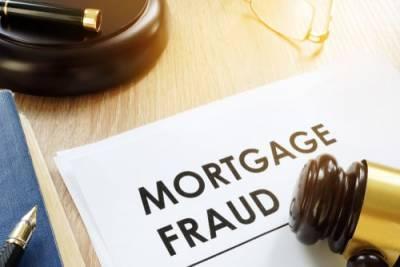What Are the Different Types of Mortgage Fraud?
 Whereas they were once settled in civil courts, these days white-collar crimes have become increasingly more common as many law enforcement agencies, including the FBI and the CIA, as well as the general public, seek justice for higher-brow financial crimes in which the accused might be bilking hundreds of thousands of dollars or more from their clients or other victims. In the case of mortgage fraud, both white-collar criminals and the average person might be accused of it.
Whereas they were once settled in civil courts, these days white-collar crimes have become increasingly more common as many law enforcement agencies, including the FBI and the CIA, as well as the general public, seek justice for higher-brow financial crimes in which the accused might be bilking hundreds of thousands of dollars or more from their clients or other victims. In the case of mortgage fraud, both white-collar criminals and the average person might be accused of it.
Mortgage Fraud Defined
Mortgage fraud, a type of financial institution fraud (FIF), is defined by the Federal Bureau of Investigation (FBI) as: “Some type of material misstatement, misrepresentation, or omission in relation to a mortgage loan that is then relied upon by a lender.” This deceptive practice of mortgage fraud then causes the bank to make a decision about the loan that could be in the favor of the offender even though he/she used deceptive means to influence such a decision.
These significant mortgage decisions include but are not limited to:
- Mortgage loan approvals
- Revised mortgage repayment terms
- Reduced mortgage payoff amounts
Essentially, there are two types of mortgage fraud:
- Fraud for Profit – This occurs when industry insiders, including bank officers, appraisers, brokers, attorneys, and other professionals involved with mortgage processing, use their specialized knowledge to collude and then defraud lenders or homeowners of cash or equity.
- Fraud for Housing – With this type of fraud, the borrower wants to attain a property or house so desperately that they falsify information on their mortgage application or elsewhere, lying about such things as their income and assets.
A Brief Overview of Some Common Mortgage Fraud Scams
There are numerous mortgage fraud schemes for which you might face charges. Here are some of the most common methods of mortgage fraud:
- Air Loans – This is an imaginary loan with no actual collateral used. Often brokers will create non-existent properties and borrowers to secure more loans.
- Appraisal Fraud – When an appraiser says that the value of a house is much more than it is actually worth, that is appraisal fraud. Doing so manipulates the local housing market and enables those involved in the grift to make more money off of less valuable homes. Appraisal fraud also happens when the homeowner, buyer, or seller alters the actual appraisal.
- Occupancy Fraud – Even if a home is an investment property, a borrower might say it is “owner-occupied” to secure a better rate.
- Foreclosure Rescue or Loan Modification Schemes – These scams involve complex processes by which homeowners who are in trouble of foreclosure are told they can be “rescued” if they agree to the terms of the perpetrator’s service. Under the guise of someone who can officially renegotiate the terms of the mortgage, you might be able to convince the homeowners to, for instance, sign over their houses to an investor or straw borrower. If you are caught misleading desperate homeowners on the verge of foreclosure in a rescue or loan modification scheme, you could face serious consequences.
- Illegal Property Flipping – There is nothing illegal about property flipping, but it does become illegal once you resort to inflated appraisals, false loan documentation, or kickback.
Contact a San Antonio Criminal Defense Attorney
Whether you are an industry insider or a homebuyer, you can get skilled defense from mortgage fraud and other similar allegations with the help of an experienced San Antonio mortgage fraud defense lawyer. Call the Law Offices of Sam H. Lock at 210-226-0965 to assist with developing the right strategy for you.
Sources:
https://www.fbi.gov/investigate/white-collar-crime/mortgage-fraud
https://www.investopedia.com/articles/mortgages-real-estate/10/how-mortgage-fraud-affects-markets.asp
https://www.experian.com/blogs/ask-experian/heres-everything-you-need-to-know-about-the-risks-of-mortgage-fraud/





